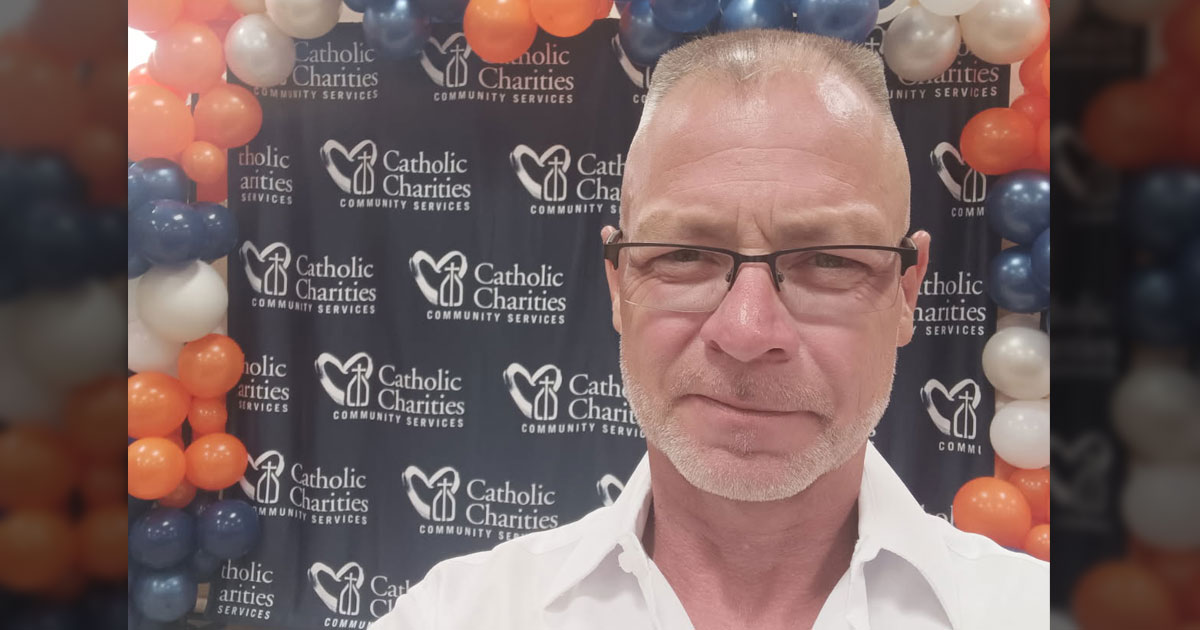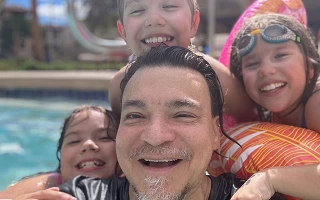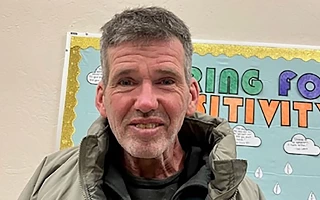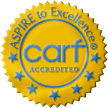When Keith talks about his life, he does it with a mix of humility, gratitude, humor and determination. Those traits have carried him through some of the toughest times of his life—and ultimately led him to MANA House.
Keith grew up on the south side of Chicago in a loving family, full of traditions, camping trips, and the kind of holidays you’d expect from the American Dream. But woven into those memories were struggles with alcoholism and substance abuse that would later become part of his own story.
Finding His Place in the Marine Corps
After graduating from high school, Keith joined the Marine Corps, working as a mechanic on CH-46 helicopters. Though his squadron didn’t deploy, his work was vital—training pilots and keeping aircraft safe. “It was like being on a football team,” he recalls. “You practice all week for the big game, and then you get benched. I was disappointed not to deploy, but I knew my job mattered.”
Keith worked his way up to crew chief, but life after the Marines brought highs and lows. Keith built houses, served as a firefighter-paramedic, and managed operations for a large landscaping company in Chicago. He married his childhood friend, and though the marriage lasted only five years, it brought him the greatest joy: his son and daughter.
Starting Over at MANA House
But like many veterans, Keith faced personal struggles. Alcoholism, financial hardship, and the loss of family members left him feeling adrift. When he decided to visit his daughter in Arizona, he considered making a fresh start in the Valley of the Sun. Instead, he quickly found himself running out of options.
“I had given myself three months to get established,” Keith explains. “But by the end of that time, I was broke. I had exhausted my savings. I was ready to pack it in and head back to Chicago.”
That’s when Keith was referred to MANA (Marines, Army, Navy, Air Force) House, a transitional living program for veterans experiencing homelessness. The program provides not just shelter, but also case management and support in accessing VA benefits, employment, and housing.
“The staff at MANA House were incredible,” Keith says. “They’re not just there to check boxes—they’re sincerely invested in your success.”
For nearly three months, Keith lived at MANA House while he searched for stable employment. Just as he was about to give up and leave Arizona, he got a call that changed everything. An aerospace company in Glendale offered him a position leading a maintenance crew. The timing couldn’t have been more critical.
“I was literally at the airport, bags checked, ready to fly back to Chicago when the phone rang,” Keith remembers. “It felt like a miracle.”
More Than Shelter
With encouragement and flexibility from his case manager, Keith was granted an extension at MANA House. That extra month gave him the breathing room to save his first paychecks and secure permanent housing. Today, Keith lives in his own townhouse just 15 minutes from work. He’s close to his daughter and grandchild and is thriving in a career he loves.
Looking back, Keith is candid about what MANA House meant to him:
“If it wasn’t for MANA House, I would’ve ended up on the streets. And honestly, I don’t know if I would have made it. That extra month gave me the chance to get stable, and now I’m standing on my own two feet.”
Keith calls himself a “self-resolver,” but he’s quick to add that no one truly succeeds alone. He credits MANA House staff—especially his case manager, Edgar Ortega—for providing the support that kept him moving forward.
“MANA House is there to help you succeed,” Keith says. “They’re really sincere about it. They gave me the chance I needed at the exact right time.”
Now, Keith looks to the future with hope. He’s working hard, planning ahead, and enjoying the freedom of stability after a time of uncertainty. Keith’s journey is proof that when veterans are supported by their community, they can build strong, stable futures.








